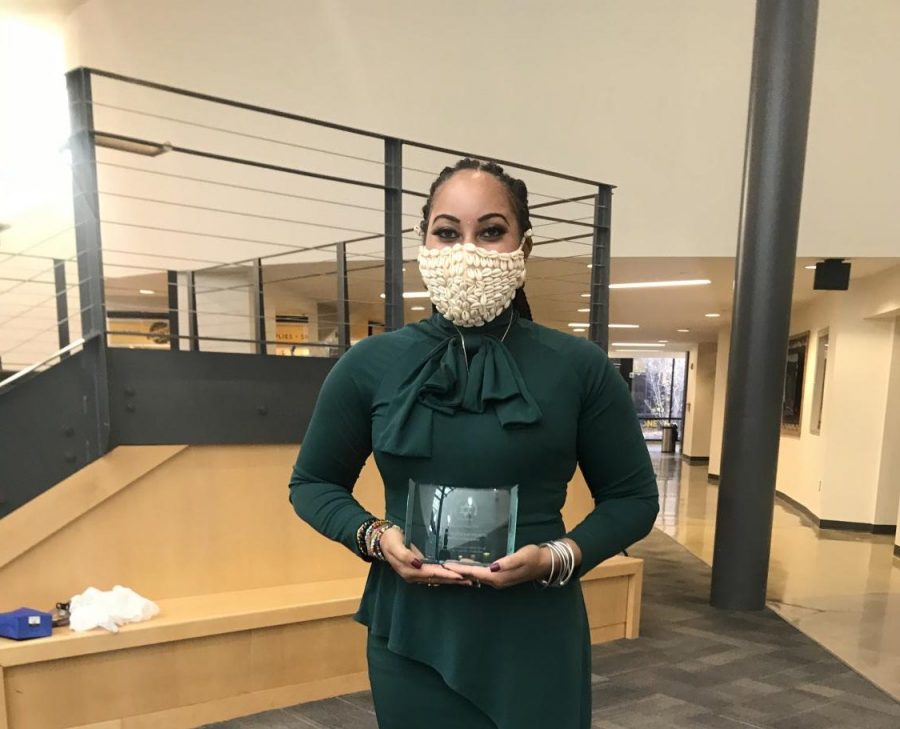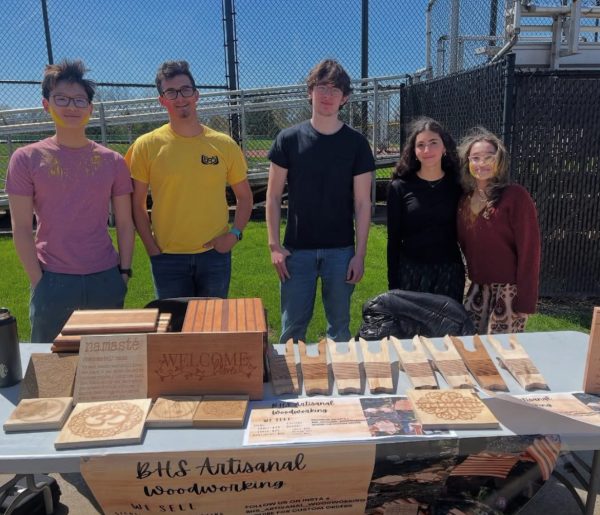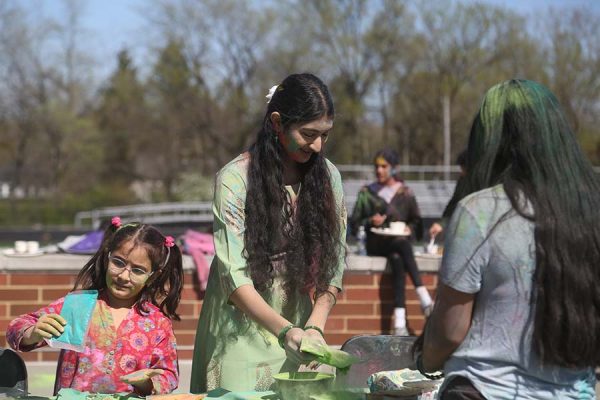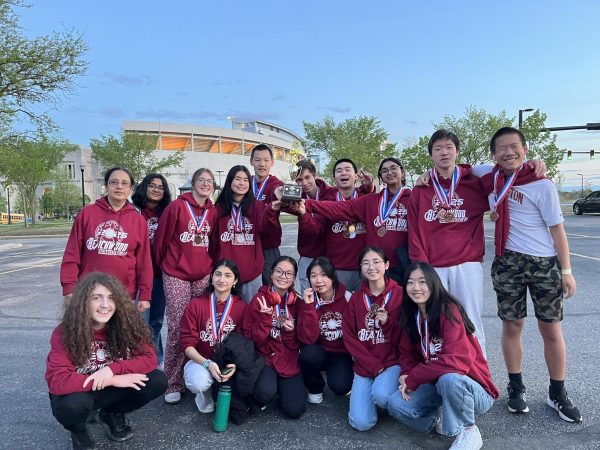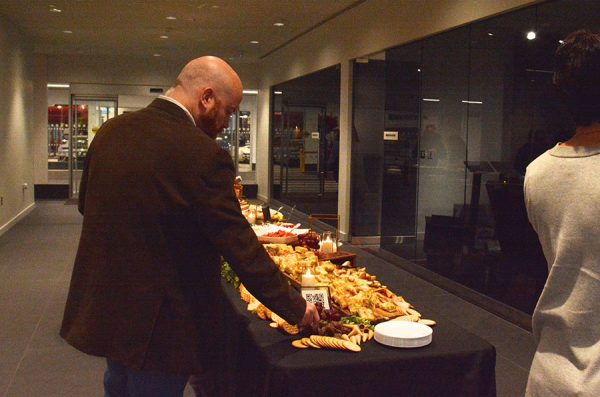Barney-Cheney Wins Holocaust Education Award
Barney-Cheney received the physical award on Nov. 19 and will be presented the award via Zoom on Dec. 16.
Social studies teacher Kathryn-Anne Barney-Cheney learned on Nov. 5 that she had won the 2020 Holocaust Education Award from the Kol Israel Foundation.
The award recognizes the nominee’s outstanding work, dedication and commitment to teaching about the Holocaust. It requires a nomination from the public. Barney-Cheney received the physical award on Nov. 19 and will be presented the award via Zoom on Dec. 16.
Barney-Cheney described her teaching method.
“[We take] an in-depth look at the history of the people who were [responsible for] the Holocaust,” she said. “I tell the story of what happened, who was [responsible], and give a personal touch by actually talking to people who had family members who survived.”
Barney-Cheney brings in guest speakers to share their personal stories.
“The presenters are people from the Kol Israel Foundation who are the children of the survivors,” she said. “[They] show recordings of their parents retelling their experiences in the Holocaust, [which includes] their story before, during and after the Holocauast.”
Barney-Cheney’s approach to teaching the Holocaust was influenced by her own cultural background.
“I reflect on what it is like for me as a descendant of people who were held in bondage,” she said. “I wish I had asked more questions of my great-grandmother and grandmother on what it was like to grow up as a grandchild or great-grandchild of someone in bondage.”
Barney-Cheney’s students particularly appreciate the guest speakers.
“It makes [the stories] more alive” she said.
Junior Claire Weaver explained what she likes about Barney-Cheney’s approach.
“One thing I really liked that Ms. Barney did during our Holocaust unit was taking the time to learn about Hilter’s personal life,” she wrote in an email. “We took the time and learned what had happened in his past that caused him to do what he did.”
“It showed… that because they were human and felt human emotion and experienced human things that this showed how a person can go down this path,” she added. “…and how a person can be capable of such awful things.”
Barney-Cheney also described her appreciation for the organization’s work to document stories of Holocaust survivors.
“I think this organization is remarkable because I wish we had more documentation for African American’s experiences in slavery,” she said.
Barney-Cheney also hopes that all of her students gain appreciation or their own cultural heritage.
“I encourage every student who knows someone who has lived through [traumatic history] to record [their story] because once they are gone you can’t get that knowledge base back,” she said. “I know first hand what that is like.”
“My goal is to have students really embrace the first-hand accounts of [traumatic experiences] so that we don’t repeat the mistakes of the past,” she said.
“If I could ask questions and record from the people who have lived through slavery I definitely would.” she added. “We can read information from a book all day, but to actually talk to someone who has lived through that experience brings history to life, and that is remarkable.”
Barney-Cheney believes the resilience of the Holocaust survivors is the most important topic in her curriculum.
“Because bad things happen,” she said. “For me at least, it’s not about what you go through; it’s how you overcome it.”
Barney-Cheney stated the most difficult aspect of teaching about the Holocaust is the intense emotions that arise, and finding ways not to get angry.
“When you are talking about people who do malicious things, that can spark a lot of emotions, but maintaining patience and kindness can be trying,” she said. “Especially when you see all the visuals, because it is still unbelievable that people can treat others that way.”
Barney-Cheney plans to continue teaching about the Holocaust and to listen to the input from her students.
“I’ll continue to listen to the students, hear what they want and need, and try to incorporate that into my lessons,”she said.
Barney-Cheney thanked the Kol Israel Foundation and those who have supported her throughout her teaching career.
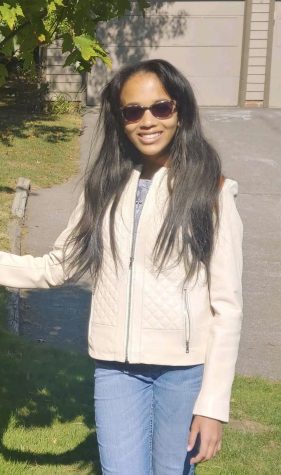
Brooklyn Hollimon (she/her) began writing for the Beachcomber in the spring of 2019. She enjoys covering school and community events. Outside of the Beachcomber,...



